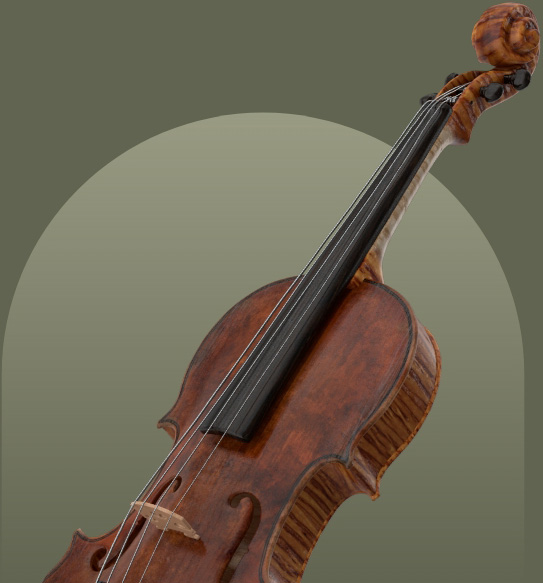John Dilworth
HILL, Henry Lockey Born 1774, died 1835 London UK. Son of Lockey Hill, below. Pupil of his uncle, Joseph (II). Worked for John Betts c.1806-1810, during which time he made templates of the Stradivari ‘King Frederick’ cello, which he subsequently used as his model. Succeeded to his father’s business in Southwark 1810, and established at 7 Brandon Row by 1826 as ‘L. Hill & Sons’. Very fine maker, the first of the Hill family to fully absorb the style and principles of Stradivari as distinct from the sometimes coarse Stainer and Amati work produced by his father. His son, William Ebsworth, below, maintained this high level of craftsmanship which became the distinction of the firm ‘W. E. Hill & Sons’. L. Hill and Sons / Manufacturers of violin, violoncello / Tenors, Double-Bass / No. 7. Brandon Row / Newington Causeway Henry Lockey Hill / Maker. London. / Kent Street. Boro’ [BVMA]
William Meredith Morris
He was the son of Lockey Hill, the grandson of Joseph Hill, and the father of the world-renowned William Ebsworth Hill. He was a pupil of his father, and he worked for some time with John Betts. Later he became partner with his brothers in his father’s firm, and contributed largely by his excellent work to make the name of ” Hill ” one of the greatest fiddle names in all Britain. The workmanship and tone are magnificent — sufficiently so to furnish the forger with an excuse to extract the label (if there were one) and inserting another bearing a more favoured name. I have seen more than one Lockey Hill violoncello in this country carrying an Italian “passport.” A renowned ‘cello player uses at the present moment a Henry Lockey Hill instrument with a Stradivari label. It is of the same measurements as the Strad ‘cello sent by Friedrich Wilhelm III. of Prussia to John Betts in 1810, to be sold in this country. In all respects it is a perfect copy, except as regards the varnish and the purfling. The varnish, although of excellent quality, and a close imitation, is not to be compared with that of Stradivari. The purfling is care- fully inlaid, but not in the manner of the original. Any one examining the mitring at the corners will perceive the difference. Careful analysis and comparison of this specimen with other Henry Lockey Hill violoncellos reveal the identity of style. Some years ago I saw a violin by this maker, made on the Amati model, with a slab back of beautiful figure, which had a dulcet tone. The colour of the varnish resembled the brownish-purple tint of the bark of the birch tree in autumn. Hill frequently used a light-coloured varnish, which is perfectly transparent and very elastic. I have seen only one of his violas, which was on a modified Amati model, with a widened waist, and not over-pronounced arching. The tone was large and deep on the lower strings, and clear and incisive on the upper ones. The scroll was in the Italian style, free and easy, and the sound-holes ” clean ” and graceful. The varnish on this instrument was of a pinkish tint, laid on thinly and nicely polished. Altogether the work of Hill is exceedingly fine, and it is a great pity there is not more of it.
Cecie Stainer
Son of Lockey Hill ; grandson of Joseph Hill ; b. 1774 ; d. Aug., 1835. Worked for some time with John Betts, was probably still with him when he took patterns (still preserved by the firm) of a Stradivari violoncello, sent by Friedrich Wilhelm III. of Prussia to John Betts in 1810, to be sold in England.
He was an excellent workman, and some violins, violas, and violoncellos of his are exceptionally good instruments. Of his four sons, one Henry (d. 1856) was a fine viola player, one Joseph (d. 1837) and William Ebsworth were both makers.
Willibald Leo Lütgendorff
Sohn und Schüler von Lockey H. »L. Hill of the Borough«. Er arbeitete
eine Zeit lang bei John Betts, durch den er wahrscheinlich das Stradivari-Modell
kennen lernte. Er ist als besonders tüchtiger Geigenmacher bekannt und stand wahrscheinlich auch zu Fendt in Beziehung, der ihn beeinflusste. Er gilt als der Erste
in der Familie Hill, der von Stainer und Amati zu Stradivari
überging.
